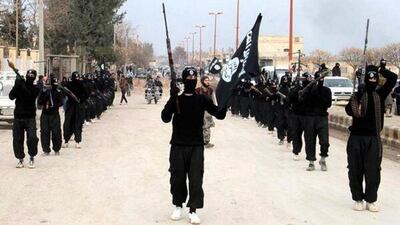The international community’s response to ISIL will likely take shape at Nato’s two-day summit in Cardiff
When faced with barbaric acts, the international community has frequently demonstrated its willingness to uphold its shared values. The broad coalition that formed after Iraq's 1990 invasion of Kuwait is a good example of this, and a similar response seems to be coalescing to confront ISIL's barbarism in Iraq and Syria.
By any measure, ISIL's militants are acting contrary to the principles for which modern civilisation stands by persecuting minorities, destroying historic sites and summarily executing innocents. These are also clearly against any reasonable interpretation of the principles of Islam, in the name of which ISIL spuriously claims justification.
An idea of what shape the international community’s response might take is expected to emerge from the two-day Nato meeting that convenes in Cardiff today. Besides the Nato member states, there will be representatives and observers from the UAE and 26 other countries in attendance.
Any plan that emerges will also inevitably require the leaders in both Baghdad and Tehran to be on board, but such is the threat posed by ISIL in the region that an agreement should be achievable.
One thing that is now clear is that president Barack Obama needs to decide on the overall strategy on how to respond to ISIL’s gains. Mr Obama has been pilloried in some circles for admitting the strategy did not yet exist, but given his predecessor’s record for using US military might – summarised in The New York Times yesterday as a policy of “Fire, aim, ready” – this hesitancy is not necessarily a bad thing. The bombing campaign that US forces have conducted against ISIL positions have checked the group’s expansion and bought the president time to get it right.
The coalition against Saddam Hussein’s aggression, it ought to be remembered, took more than five months to organise before Operation Desert Storm was launched to liberate Kuwait. Most assessments of that campaign are that the international community got it right, ousting an occupying army and returning a sovereign nation to its citizens. One can only hope for as much success against ISIL.

